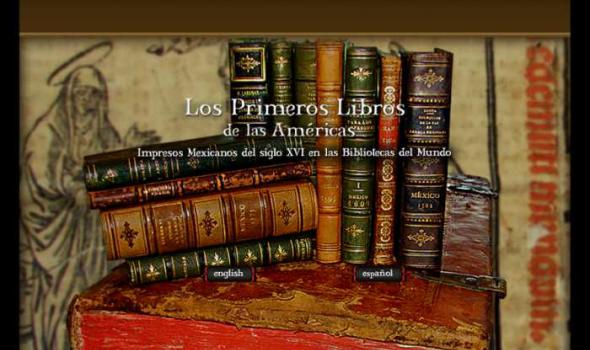Category: Spanish, Mexico
Results
Primeros Libros Project Agreement The Impresos Mexicanos del Siglo XVI project will build a digital collection of the first books printed in Mexico before 1601. These monographs are very important because they represent the first printing in the New World and provide primary sources for scholarly studies focused on a variety of academic fields. Approximately 220 unique titles are held in institutions around the world with most held in Mexico and the United States.
The late James McKegney, Professor of Spanish at the University of Waterloo for more than thirty years, passed away in 1981 and left to his heirs one of the most important research collections pertaining to the independence movement in Mexico, 1789-1828. The research materials, compiled between 1965 and 1980, consist of a bibliographic database of more than 11,000 citations and over 1,150 photocopies of pamphlets listed in the database. This database and the accompanying documents are one of the most important archival sources in the world for the study of the political, social and cultural aspects of the independence movement in Mexico.
History of Medicine Español - Italiano Healing and faith have always played a role in the lives of the faithful. They are interwoven in the fabric of social history. How we regard illness and healing, and how we cope with them have captured our imagination throughout the ages. The expression of our relationship with illness is wonderfully illustrated in the ex-voto, a devotional painting giving thanks to a saint or deity for a miraculous healing or a blessing. The faithful have always used prayer to invoke the aid of saints as a means to heal the sick and end one's suffering. These devotional paintings are an individual's expression of thanks for the intercession of the divine in a crisis, a snapshot in time of illness and healing.
Digitization, which began on October 15, 2001, is managed at the Arhoolie Foundation's facilities in El Cerrito, California. The production team, under the direction of Foundation Board members Tom Diamant and Chris Strachwitz, first cataloged the entire collection of over 130,000 individual recordings on cassettes and 78 rpm, 45 rpm, and 33 1/3 rpm long-playing (lp) records. They purchased specialized equipment to begin the initial phase of this highly technical process.
The Strachwitz Frontera Collection contains three sections, roughly divided by era.
Harvard's Widener Library is the repository of many scarce and unique Latin American pamphlets published during the 19th and the early 20th centuries. One of the few institutions to have consistently collected Latin American pamphlets, Harvard has benefited from collections formed by Luis Montt (Chile), Nicolás Acosta (Bolivia), Manuel Segundo Sánchez (Venezuela), José Augusto Escoto (Cuba), Blas Garay (Paraguay), Charles Sumner, John B. Stetson and others. Chile, Cuba, Bolivia and Mexico are the countries most heavily represented in this collection. These pamphlets are valuable primary resources for students and researchers working on Latin American history.




















